Could SLO County Beach shooter tell right from wrong? Here’s what psychologist said
The man convicted of killing two people at a San Luis Obispo County beach was able to tell right from wrong when he fatally shot them, a psychologist testified Monday — differing from the opinion of two other forensic psych experts called by the defense.
A jury convicted Stephen Deflaun of the first-degree murders of Stephen Wells, 37, and Wells’ 11-year-old nephew, Jerry Rios Jr., after a confrontation over a Morro Strand State Beach campsite on July 8, 2001. Deflaun was also convicted of assault with a firearm on a peace officer, in this case a California State Parks ranger.
The trial against the 63-year-old has entered its second phase — the so-called “sanity phase” — where San Luis Obispo Superior Court Judge Jacquelyn Duffy to decide whether Deflaun is legally insane, and therefore, not guilty by reason of insanity.
According to court testimony throughout the trial, Deflaun has a long history of paranoid schizophrenia dating back to the early 1970s. A forensic psychologist in a 2004 court hearing said Deflaun would likely never be competent to stand trial, but that changed in April 2022.
Deflaun’s attorneys rested their case in the sanity phase Thursday, with a forensic psychologist and forensic psychiatrist testifying Deflaun could not distinguish right from wrong when he shot Wells and Rios Jr.
“It’s our intent to establish the defendant did understand the nature and quality not of what he is capable of but what he did and he did understand the concept of right from wrong,” San Luis Obispo Assistant District Attorney Eric Dobroth said Monday before he called his first witness.
In order to be found not guilty by reason of insanity, the defense must prove beyond a reasonable doubt that Deflaun has a mental illness and either could not understand the nature and quality of his actions or could not reason right from wrong at the time of the shooting.
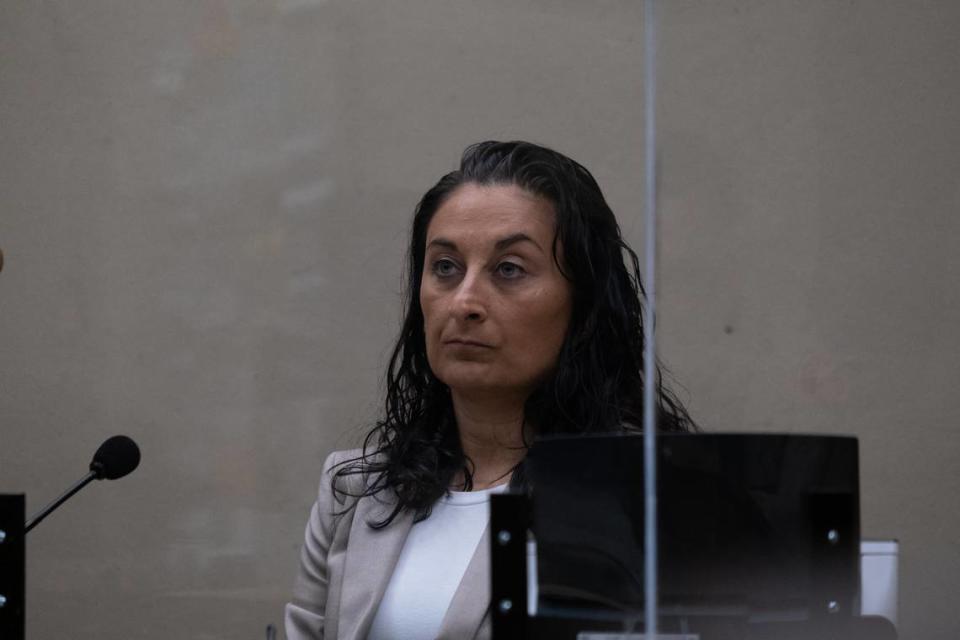
Shooter understood right from wrong, psychologist says
Roxanne Rassti, a forensic psychologist at Atascadero State Hospital who also has her own private practice, testified Monday that Deflaun could understand the difference between right and wrong when he shot Wells and Rios.
The psychologist, who interviewed Deflaun in September, said the main contributing factors to his actions were an altercation between Deflaun and Wells; Deflaun’s feelings about the encounter and the effect of alcohol on Deflaun.
Rassti said Deflaun’s mental illness was a factor. He has been diagnosed with paranoid schizophrenia.
However, she added, Deflaun’s actions did not indicate to her that he was overly impaired by his delusion.
According to court testimony from several experts, as well as Deflaun himself, Deflaun believes he has been — and still is — tortured “the program,” or voices in his head that tell him that about everything in the world is against him.
She agreed it can be “hard to tease out” which stressor is responsible between the mental illness, alcohol and stressors.
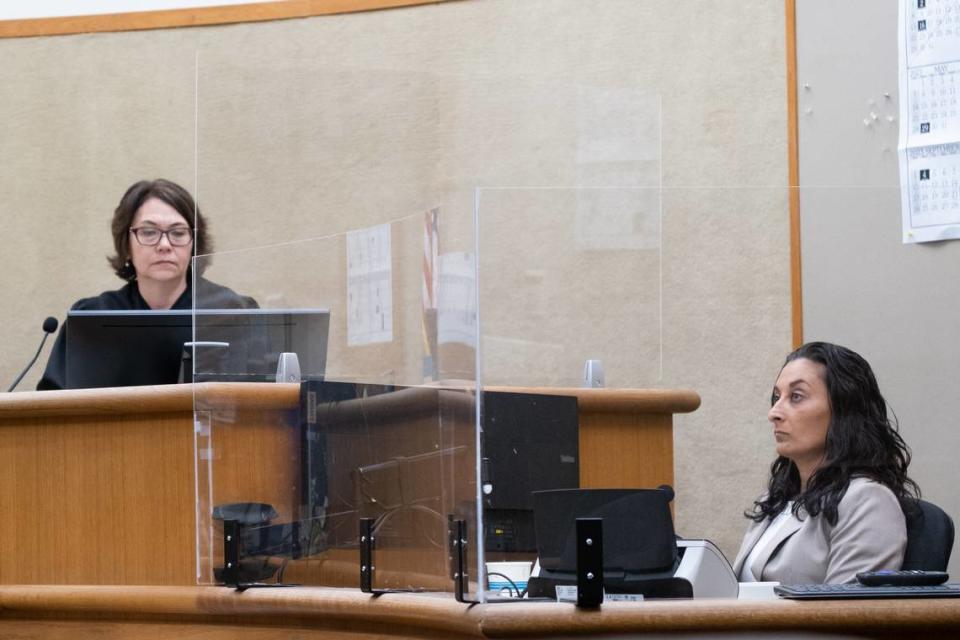
When alcohol interacts with the paranoid schizophrenia Deflaun has, it “could decrease (his) frustration tolerance and can exacerbate ongoing symptoms,” Rassti said.
She believes Deflaun’s statements the day of the shooting, such as “I’m sorry,” and “I’m gonna be in so much trouble,” indicate his actions were based in reality and he likely understood the wrongfulness of his actions.
When she asked why he apologized, Deflaun did not give a straight answer but told her “he was fed up and had been enduring torture for an ongoing period of time.”
Rassti said Deflaun’s apologies were “indiscriminately applied” because he shot two people but didn’t shoot the ranger or anyone else on scene.
“Why is he unable to ignore that voice and not act on it in other times?” Rassti asked the defense.
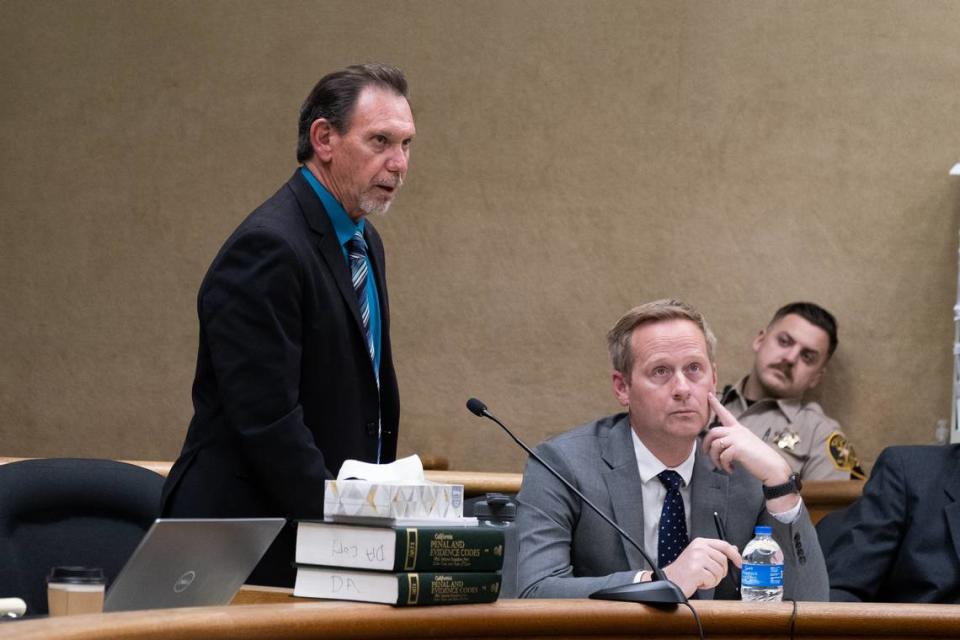
Defense attorney Raymond Allen honed in on the fact that the voices, according to Deflaun, only identified Wells as a “federal agent a--hole,” or assassin.
Rassti agreed that was delusional, but emphasized that if Deflaun believed that everyone was a part of “the program,” then the defendant would have been shooting everyone.
She added that if Deflaun were apologizing to appease “the program,” then that would have been his approach to Wells.
Allen asked whether inconsistency and illogical thinking are symptoms of paranoid schizophrenia, and Rassti said they are.
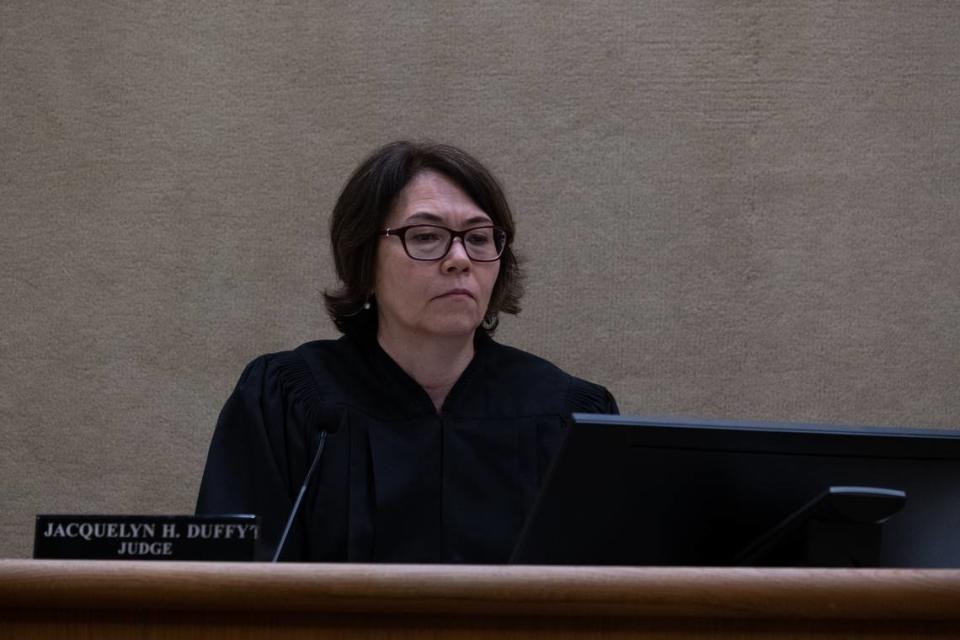
Witness: Main factors of shooting were alcohol, altercation
Speaking on the witness stand, Rassti agreed that three factors of the shooting — the altercation, alcohol and mental illness — were intertwined.
The psychologist added that the altercation and alcohol carried equal weight, in her opinion.
Rassti said that she had to give weight to what was reported at the time of the incident, and added that it is possible for Deflaun to lie, have a “faded” memory or have evolved delusions.
According to eyewitnesses, Deflaun did not appear to be having an obvious mental health crisis at the time of the shooting.
Allen noted that Deflaun is high-functioning, a typical symptom of paranoid schizophrenia, and part of his delusion was that he does not want people to know he hears “the program” while at the same time thinking everyone also knows he can hear “the program.”
Raasti agreed that Deflaun’s efforts to hide his knowledge of “the program” make sense within the delusional paradigm he has.
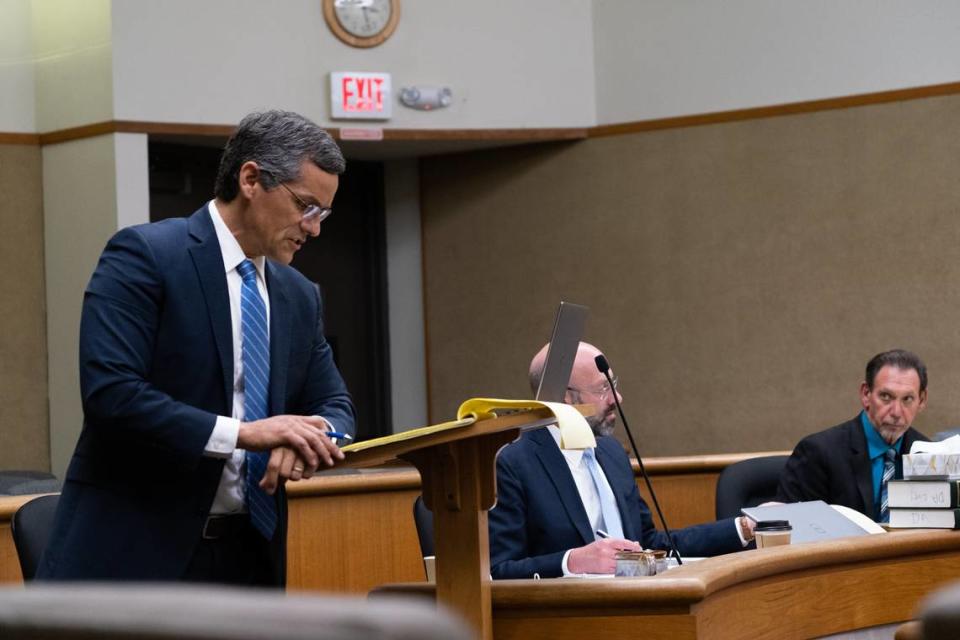
Deflaun’s paranoid schizophrenia does not present as disorganized, which is usually a primary symptom that leads to being not guilty by reason of insanity, Rassti said. Another is having delusional ideation.
In her September interview with Rassti, she said, Deflaun reported that he was hearing the voices of what he calls “the program,” but Rassti said he did not appear to be distracted by any voices during their conversation.
She ultimately agreed Deflaun “genuinely believes” he hears voices that are a result of “the program.”
While Deflaun might not reference “the program” specifically, Rassti said, he wrote about paranoia in his journals which can be attributed to his fears of it.
However, his symptoms would have to be “so impairing that it prevents” his ability to understand wrongfulness, she said.
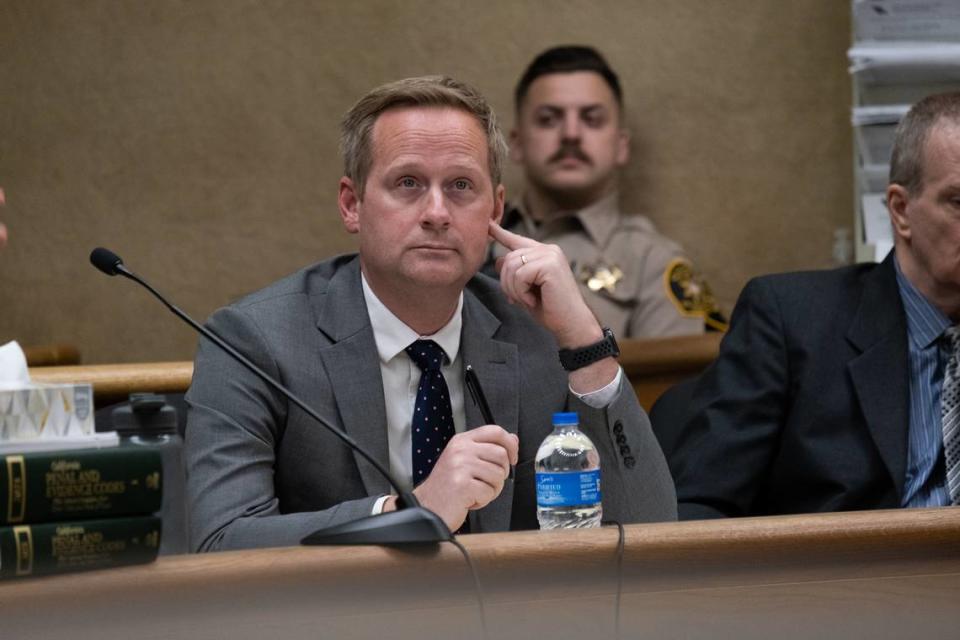
Rassti said Deflaun told her he believed he was going to end up saving thousands of lives if Wells killed him. If this was the case, she said, Deflaun wouldn’t have loaded his gun or shot Wells and Rios Jr.
She said it was fair to say Deflaun had delusions on July 8, 2001, and has fixed delusions which have remained consistent throughout his 40-plus-year record of mental illness.
However, only focusing on Deflaun’s schizophrenic symptoms disregards other contextual factors, such as Deflaun not shooting anyone else, Rassti said.
She added it is possible for someone with for someone with schizophrenia to understand the moral wrongfulness of their actions.
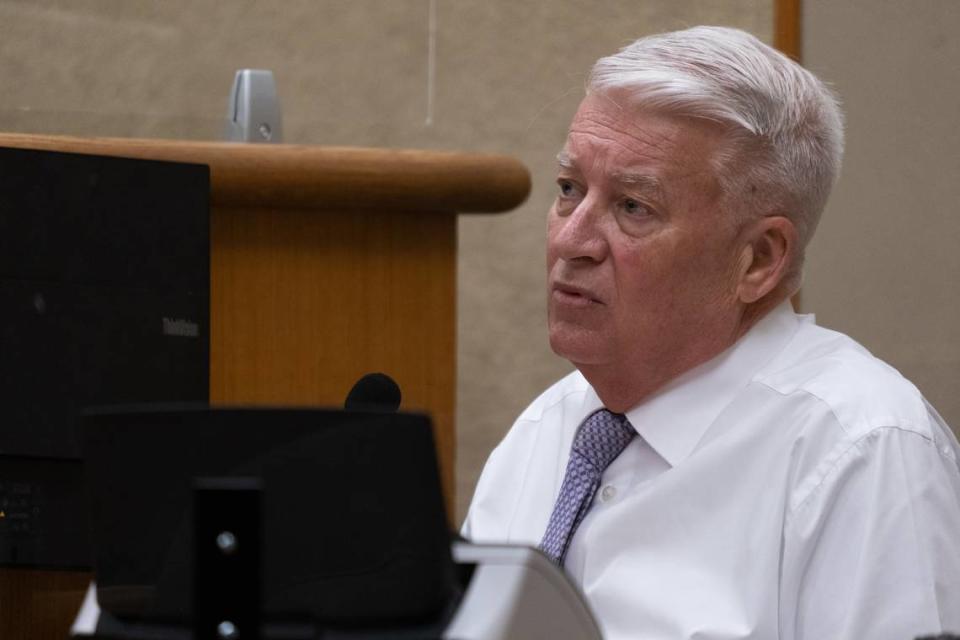
What’s next
Forensic psychologist David Fennell, who worked at Atascadero State Hospital at the time of the fatal shooting, began his testimony at the end of the court day Monday.
He reviewed the case and evaluated Deflaun in the fall of 2001 at the direction of the San Luis Obispo County District Attorney’s Office in order to figure out whether Deflaun met the criteria for not guilty by reason of insanity.
Fennell testified he recommended that the agency not seek the death penalty against Deflaun, and confirmedthat the defendant has a long history of paranoid schizophrenia.
Fennell will continue his testimony Tuesday afternoon, when court resumes.
If found not guilty by reason of insanity, Deflaun will be put in the custody of the California Department of State Hospitals for care and treatment unless or until his sanity is “recovered fully,” according to state penal code.
Deflaun will be sentenced according to California sentencing laws if the judge rules he was in his right mind when he killed Wells and Rios Jr.

